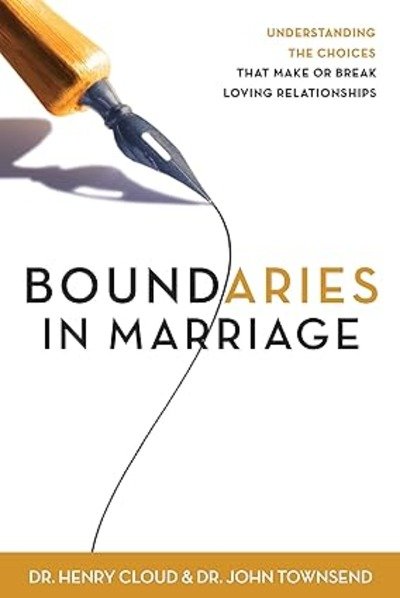Codependency
and Addiction
Surrender
Leaving Denial Slowly

Inevitable Triggers
Denial can shield individuals from the full impact of childhood experiences—until an unexpected event forces a reckoning. During a road trip, Jacquie encountered a tragic scene: a deceased man by the interstate. Strangely, it was the man’s grieving teenage son—not the death itself—that triggered deep, unresolved emotions tied to the loss of her own father years earlier. Despite never shedding a tear for her father, Jacquie found herself mourning a stranger, finally confronting the emotional numbness that had taken root.
Ignoring Messages
For over a year, subtle prompts—through friends, circumstances, and faith—urged Jacquie to face her inner pain. Yet the urge to maintain control and the illusion of a “managed life” kept her trapped in anxiety, emotional detachment, and denial. Despite the mounting internal pressure, she resisted until the messages could no longer be ignored.


Inhibited Anger
The turning point came during a sermon about Lazarus, where the metaphor of buried pain resonated deeply. Overwhelmed with emotion, Jacquie opened a long-overdue conversation with her mother and, for the first time, allowed repressed anger toward her father to surface. This breaking point led to a crucial decision: seeking professional counseling and beginning the journey of surrender.
Change
Moving Into Action

Awareness
In her first therapy session, recounting childhood and marital experiences revealed profound underlying anxiety. A recommendation for Intensive Outpatient Program (IOP) therapy initially met with resistance—denial reasserted itself—but learning about Adult Children of Alcoholics (ACOA) changed everything. Understanding survival roles and their lasting impact exposed the deep roots of behavior patterns long unacknowledged.
Education
Although initially skeptical, committing to IOP became a transformational choice. Education on emotional neglect, trauma, and unhealthy family norms shattered the myth of a “good childhood”, and reinforced the difference between a “normal” childhood” and a “healthy” childhood. Moving through anger—a critical stage of grief—eventually paved the way for acceptance and healing the following year while working through the 12 steps in Al-Anon.


Boundaries
The concept of boundaries was foreign after years of blurred relational lines. Therapy introduced the concept as essential in every relationship. This proved revolutionary and catapulted the process of change in Jacquie’s life and marriage. The faith-based book Boundaries in Marriage by Cloud and Townsend gave her permission to begin setting limits and focusing on herself. But she quickly learned that change would not be easy because the pushback would be intense!
Manipulation
Setting boundaries was one challenge; enforcing them was another. As Jacquie grew healthier, the relational conflict in her marriage escalated. Her newfound limits were met with almost unbearable resistance: anger, blame, rage, guilt-trips, empty promises, and triangulation. Despite the almost unbearable resistance, community support and growing self-awareness allowed her to recognize patterns—and with it, find empowerment.


Detachment
Once she recognized the manipulation for what it was, she began to detach emotionally—walking away, hanging up the phone, and blocking his number became common responses. Although detaching didn’t always come from a place of love, it kept her from engaging in toxic drama. During a trip in September, a verbal attack over the phone made her realize that her boundaries weren’t protecting her from ongoing emotional abuse. When he later confessed to having a drinking problem—a moment she’d once longed for—she no longer saw it as a turning point, but as another tactic. This time, she responded firmly and without guilt, finally detaching in a way that honored her own healing.
Alcoholism
The First Intruder

Breaking My Silence
After giving John back responsibility for his alcohol problem, she broke down and chose to break the silence, confiding in trusted friends and family. She asked only for their prayers, explaining that after ten years of trying to rescue him, she had realized only God could help. She warned them that John might seek new rescuers and shared the manipulative tactics he might use. While she had hoped they would help uphold her boundaries, his family quickly stepped in to rescue him, embracing his victim narrative and turning against her. When his sister tried to involve her in John’s drama, she calmly set a firm boundary and prepared to distance herself from his family as well.
The Last Drink
Four days later, John’s sister stopped trying to rescue him and called to admit, “You were right. You can’t save someone who doesn’t want to be saved.” She then wrote him a heartfelt two-page letter outlining her concerns about his drinking and urging him to get help. That letter, more than anything else, seemed to lead John to a place of surrender. It became clear in hindsight that her words held more sway than Jacquie’s—a sign of the deep family enmeshment they would later have to confront. Regardless of what finally motivated him, John took his last drink on October 6, 2013, the day before he came home from a long 17-day trip.


The Call For Help
When John returned home, he admitted he needed help and said he planned to self-disclose to his company’s recovery program. By that time, she had learned two vital lessons: it wasn’t her responsibility to make that call for him, and she would no longer trust words without consistent action. She responded firmly, telling him, “I hope you do, because if you don’t, I’m divorcing drunk John,” while reaffirming her love for the sober man she had married. She made it clear that she would not engage with him in any way while he was traveling because it was impossible to know if he would be sober. The next day, John followed through with his commitment. He contacted his company, disclosed his drinking problem, and asked for help.
Confession Week
John’s company wanted to send him to inpatient treatment right away, but with their ten-year anniversary trip already planned, they agreed to delay it, trusting he wouldn’t back out. During the trip, he confessed everything: his lies, secrets, and the ways he had hidden his drinking. He was overwhelmed with shame and regret. For the first time, Jacquie saw what felt like true remorse and a sincere desire to change. She responded with both compassion and accountability, encouraging him while holding him to his promise to seek help. True to his word, John entered a 30-day residential treatment program upon their return, and she believed their battle with alcohol was finally over—but that hope would soon prove to be misplaced because the real issue remained hidden: trauma.


